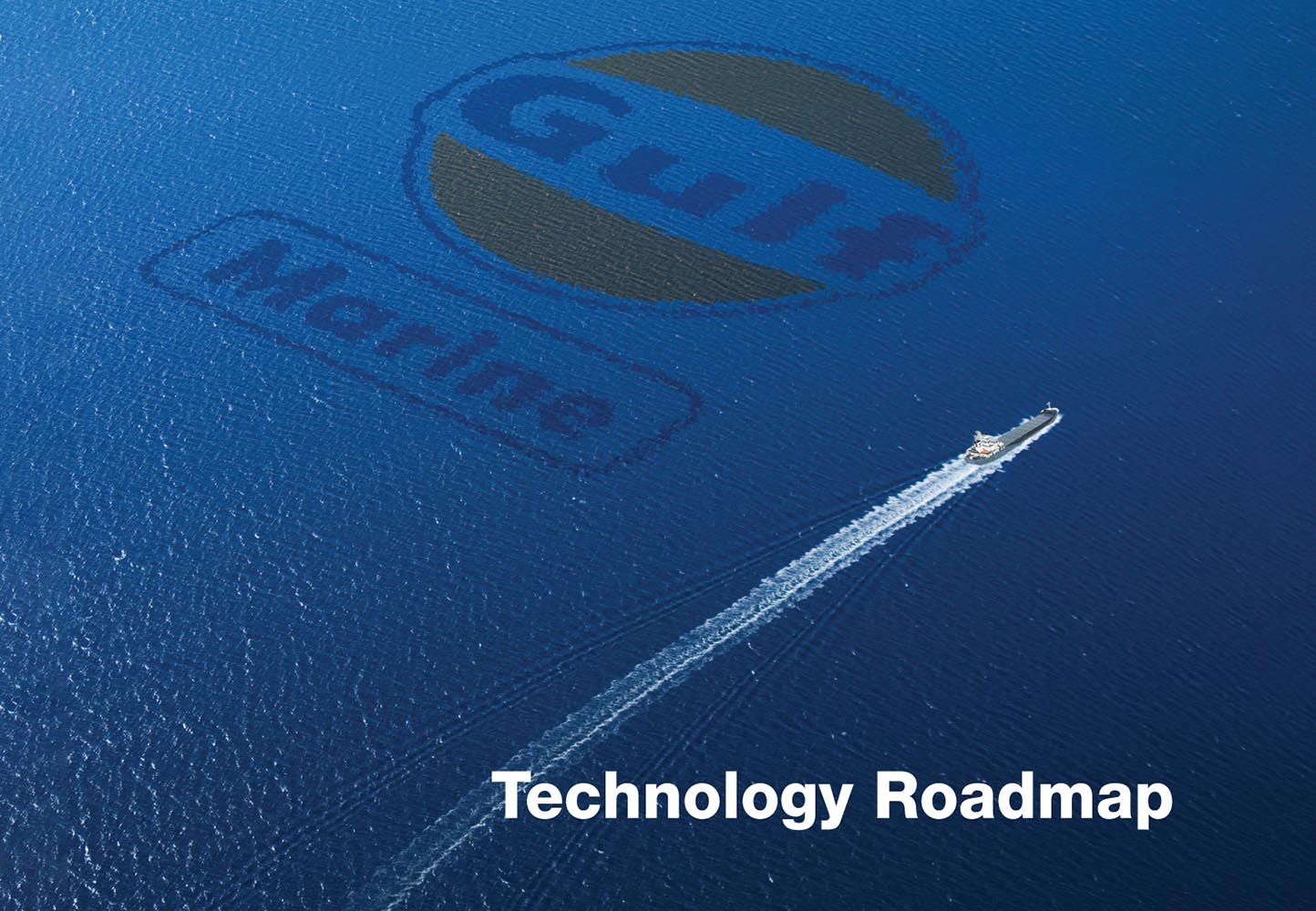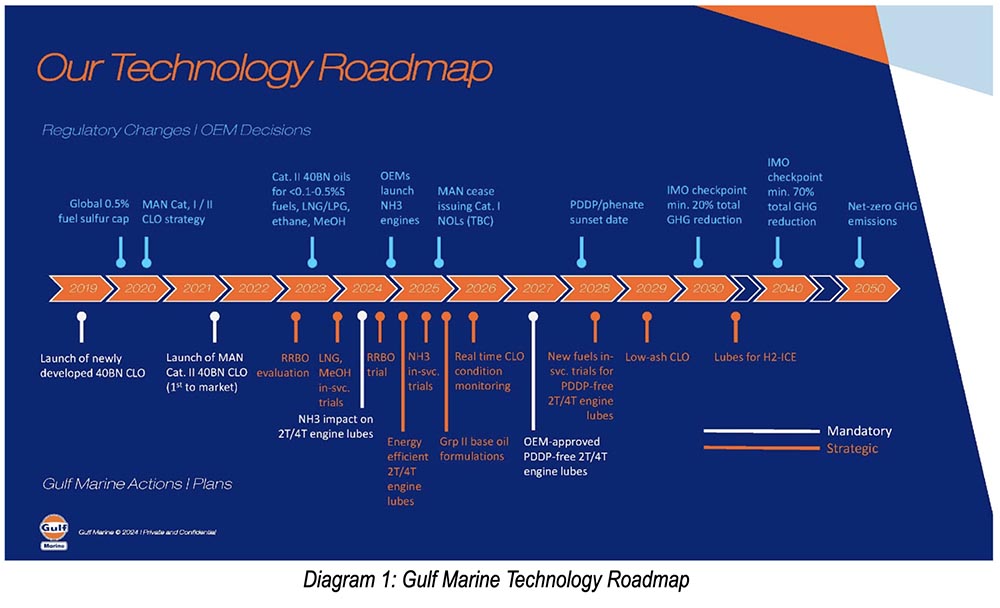
Navigating maritime decarbonisation: The pivotal role of marine lubricants
The marine shipping sector will need to undergo significant transformation in order to comply with increasingly more stringent international environmental regulations and targets. Stricter environmental standards and a focus on maritime decarbonisation are driving the development of alternative fuels, new engine concepts, and improved operating practices. Adopting these will entail considerable complexities for vessel operators. For instance, the move to the new low-carbon alternative fuels (which the IMO estimates will contribute significantly to the industry’s decarbonisation efforts) will require clearer fuel specifications and bunkering systems, etc.
With increased complexity, the maritime decarbonisation transition will need to be approached on a global basis with close collaboration among diverse stakeholders across the whole value chain.
Dr. Edward Ng, Gulf Marine’s Technology General Manager, explained, “Marine lubricants play very key roles in the industry’s decarbonisation transition. For instance, we are investigating if lower viscosity lubricants have any potential to help to reduce energy consumption and CO2 emissions, and working on novel chemistries to enhance engine reliability. Certainly, with the increased use of re-refined base oils, we will improve lubricant circularity. So, indeed, lubricant developers are crucial to achieving decarbonisation goals.”
Lubricants have indeed been considered in key marine propulsion innovations, and most mainstream engineers do integrate lubricant considerations into their development projects.
Yet not many people are aware of the criticality of marine lubricants in the road to marine decarbonisation. It is imperative that lubricant developers strengthen efforts to inform/educate industry stakeholders. It is in light of this, that Gulf Marine is sharing our Technology Roadmap (see diagram 1).

The roadmap follows from Gulf Marine’s major strategic milestone. Gulf Marine was the first in the market to launch a Cat. II 40BN CLO; that demonstrated its leadership in developing solutions that cater to evolving market needs for improved lubricant performance to ensure engine optimal performance in the face of fuel quality variances as well as increased fuel varieties/choices, including LNG, LPG, ethane, and methanol (alternative fuels that signify a shift towards lower emissions in maritime operations).
Gulf Marine has embarked with vessel operators, OEMs and others on testing/trials for LNG, LPG, and Methanol to validate that its product’s performance remains robust with these different fuel types. This year, the focus will expand to include the impact of NH3 on engine lubricants, an initiative together with leading research institutions, that further underscores Gulf Marine’s commitment to adapting to new fuel types without compromising engine health and efficiency.
By 2026, Gulf Marine is expected to launch an enhanced cylinder oil condition monitoring system for vessel operators. This advancement enables more timely and precise adjustments and optimisation of oil usage, enhancing engine efficiency and reducing unnecessary waste while ensuring engine operability. Towards 2030, Gulf Marine plans to introduce low-ash cylinder oils and specifically formulated lubricants for hydrogen-fuelled internal combustion engines (H2-ICE).
Edward also stated, “Gulf Marine’s commitment to collaborating with key shipping stakeholders to work on the maritime industry’s decarbonisation goals is clear. The development of advanced lubrication technologies to enable the use of alternative fuels positions Gulf Marine as both a technology leader and a dedicated partner of our customers’ decarbonisation efforts.”
This roadmap provides a sound underpinning for Gulf Marine’s product development program; it helps us to remain abreast of industry developments with evolving regulations and technology advancements and ensures that Gulf Marine will continue to proactively provide lubrication solutions that anticipate and exceed global standards.
The full roadmap can be found in:
http://marine.gulfoilltd.com/downloads/technical-bulletins/TB026-Navigating_Maritime_Decarbonisation









